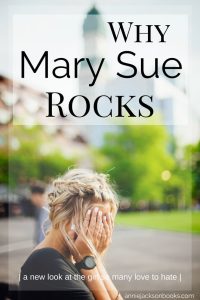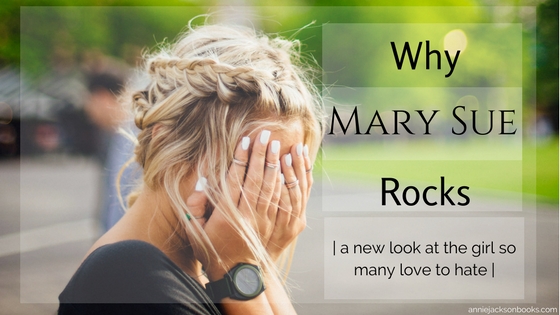
I seriously dislike the term Mary Sue. I used to despise it quite fiercely but writing this post siphoned most of that venom.
I’m still bothered when I see that term used in a review or blog post. I always want to link back to this post with a comment that I don’t think they realize what they’re saying.
I mean, they do. They’re using cultural shorthand to say that the character is one dimensional, flawless and a little too perfect. Quite possibly a figure of wish fulfillment for the author. I mean that is the definition, essentially.
A Mary Sue, in literary criticism, is a fictional character with overly idealized and hackneyed mannerisms, lacking noteworthy flaws, and primarily functioning as a wish-fulfillment fantasy for the author or reader.
from wikipedia
But what I don’t think they realize is that by that definition, you know what the male version of a Mary Sue is?
James Bond.

It makes me livid that we criticize women for writing wish fulfillment fantasies; that we say they aren’t good writers and their characters aren’t interesting and imply they can’t write something better (even the definition of the term Mary Sue reads like an indictment against both the character and the author).
And then we go out and watch the latest James Bond movie and praise it for heart-stopping action and how James Bond is such an appealing badass (full disclosure: I’ve never really liked James Bond. I find him to be rather boring and more jackass than badass). Skyfall this past weekend made $80M. But apparently there’s something wrong with women who write idealized female characters.
To be fair, I think there’s actually two questions at the heart of this and to examine them you have to sort of divide the definition of Mary Sue in half – or maybe more accurately two-thirds.
- There’s the one dimensional third where readers find a character to be flat and uninteresting.
- Then there’s the other two thirds where she’s an idealized female character without “noteworthy” flaws.

I don’t think anyone would applaud one dimensional characters though I think we should be equal opportunity critics and deride one dimensional men with as much snark as we do one dimensional women. So then let’s ask the next obvious question.
Why do guys enjoy wish fulfillment characters and girls criticize them? Why do we as an audience enjoy idealized men and criticize idealized women? What’s wrong with being pretty and really good at what she does and wanted by all the boys? Because it certainly works for James Bond.
The underlying question which I have to acknowledge is that for women the very idea of being pretty and good at what she does and wanted by all the boys is by default one dimensional. I don’t think that’s necessarily true (and realize it wasn’t actually a question). But going down that path quickly becomes a slippery slide into deeper psychological questions about why women deride even actual human beings they consider “too perfect.”
Because somehow in comparison (either conscious or unconscious) women find all the ways they fall short while men congratulate themselves and revel in their similarities. (And I know I’m making sweeping generalizations.) But there is something insidious working to crush women and we cooperate and willingly tear ourselves and other women down.
But that’s not really where I want to go. The thing I want to say to every person who uses the term Mary Sue is that an element of what you’re really saying is there’s something wrong with an idealized female character. And that sucks. It just flat out sucks.
Now, I’ll be the first to admit that I don’t like flawless main characters. I think (in broad generalized terms) men do it because they have no problem with unchecked wish fulfillment and women do it to overcompensate against some damsel in distress syndrome. But give the character a few weaknesses, let them get help from their friends and I have no problem with them being the only one with a unique and especially powerful ability or destiny.
So, please, call out one dimensional characters. Because those aren’t good for anyone. Use all the snark at your disposal. But don’t use derisive terms to do it because it diminishes us all.
And also, maybe let go and let the character be too perfect, even if it isn’t realistic. You might just find you enjoy being incredibly pretty with a super special destiny and wanted by all the boys for 300 pages.


I think as women we’re probably just too critical of our gender, however we’re represented. I’m not a raging feminist by any definition, but maybe it’s because women have had to constantly prove themselves in the gender race. So any slight on our gender is a HUGE deal.
I think you make a really valid point that because of sort of the difficulties and the constantly having to deal with gender issues any sort of slight feels bigger or seems harsher. Giving each other a little grace would probably go a long way (which I say to myself as much as anyone else).